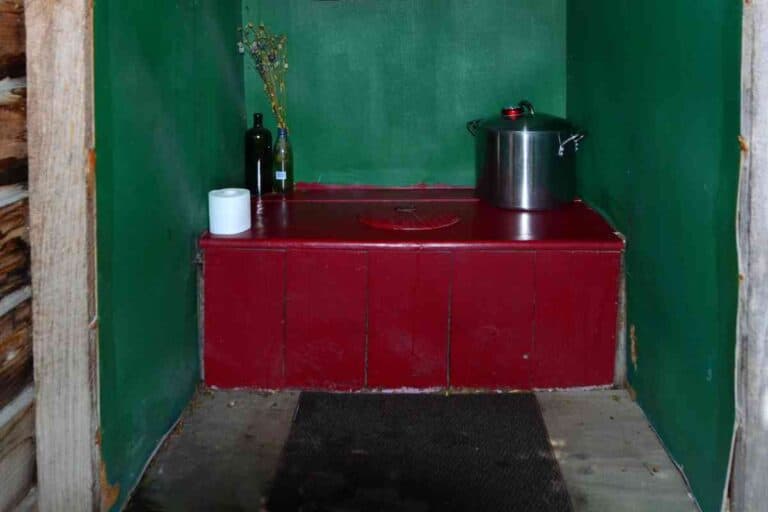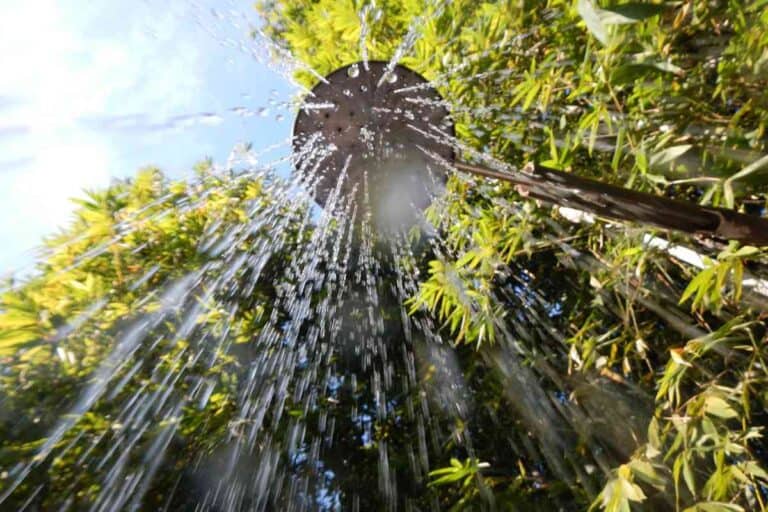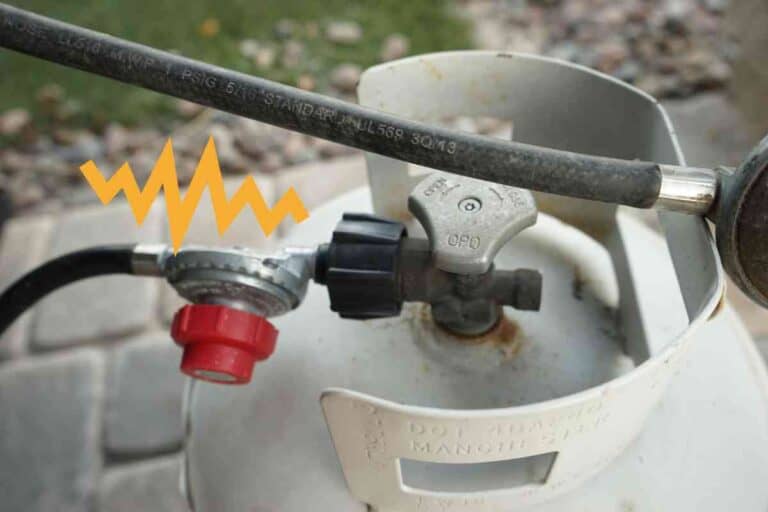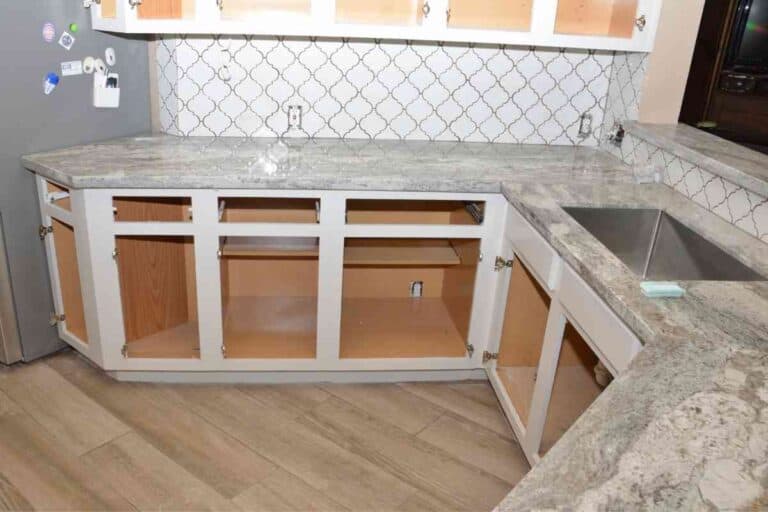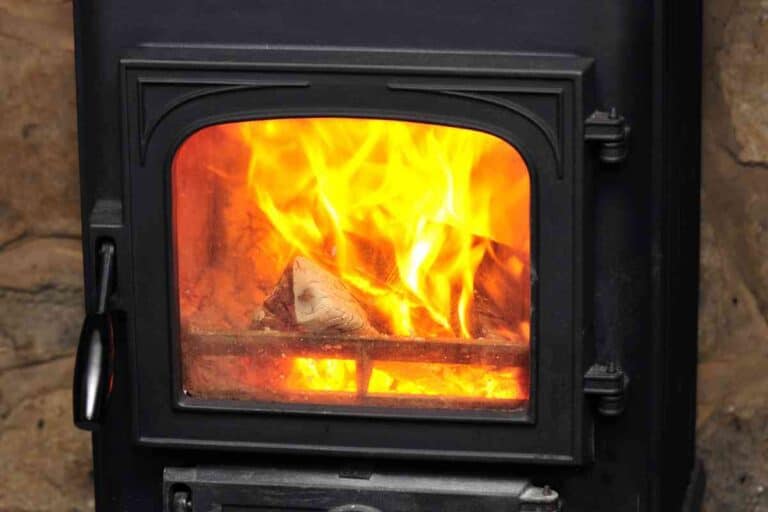Propane Tank Making A Ticking Noise? A Guide To Propane Tank Noises
Gas-powered items can make some unusual noises. Is a propane tank supposed to make a clicking sound?
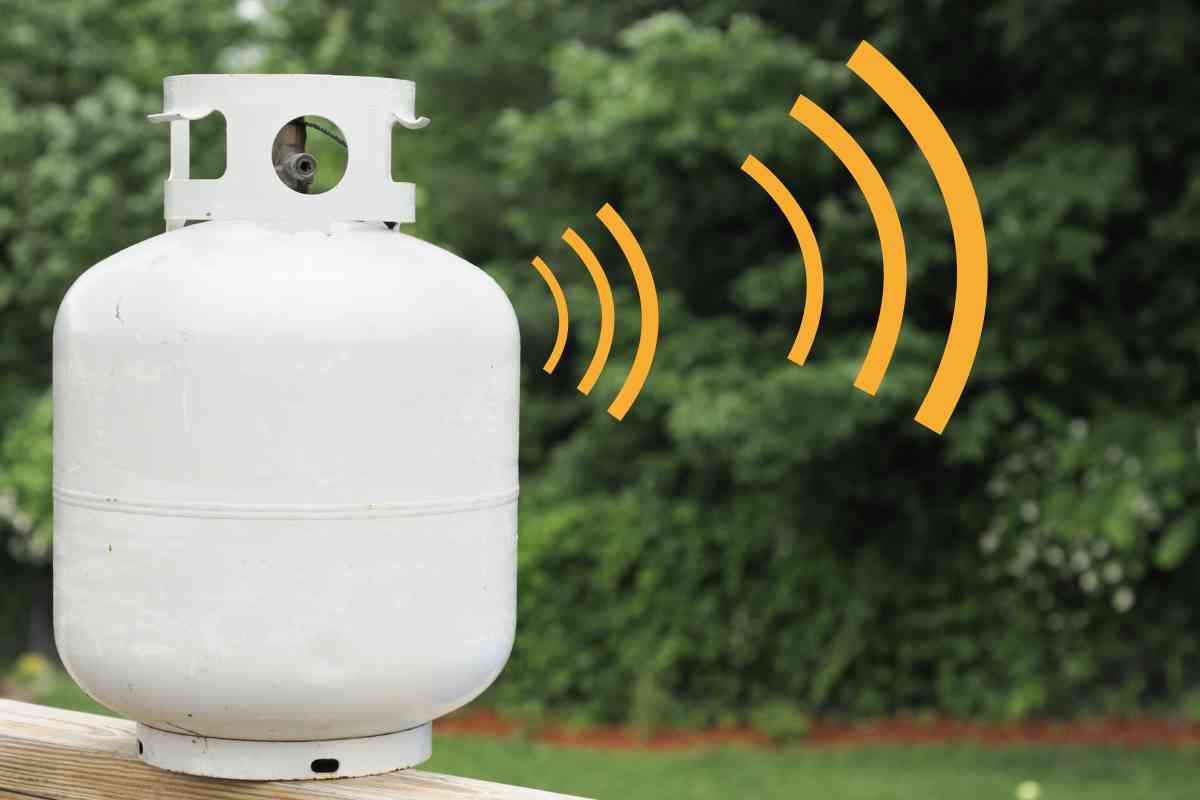
Why is my propane tank ticking?
A steady clicking sound from a properly working propane tank isn’t a bad sound. The sound you are hearing is the propane valve and regulator working and keeping the amount of propane headed to burn at a normal level. Rapid or loud clicking is not normal and requires repair within the valve.
We’ll discuss what sounds your propane tank can make -especially regarding clicking, and what you should do about it.
| Related Article! |
| Propane Tank Whistling Noise: What’s Normal And When To Run! |
What kind of clicking is bad within a propane tank?
As a series of houses and pipes that streams propane from a tank to your grill or burner, you’ll inevitably hear something – it’s just a matter of knowing what sounds mean and what do to about them.
A quiet, steady click
A steady clicking noise that doesn’t get any louder or faster isn’t necessarily a bad thing – in fact, it’s usually a sign that the propane valve and regulator are doing their job.
Your propane tank has a valve that allows for changes in the amount of propane being sent to the burners at the other end.
The regular and valve are spring loaded, so the sound you are hearing is the mechanism within moving to temporarily stop or start the flow of propane.
These devices are smart enough to know when there is too much pressure or gas being sent – you can trust them to do the right thing so long as the clicking within is quiet and steady.
You don’t have to do anything about a quiet, steady clicking noise.
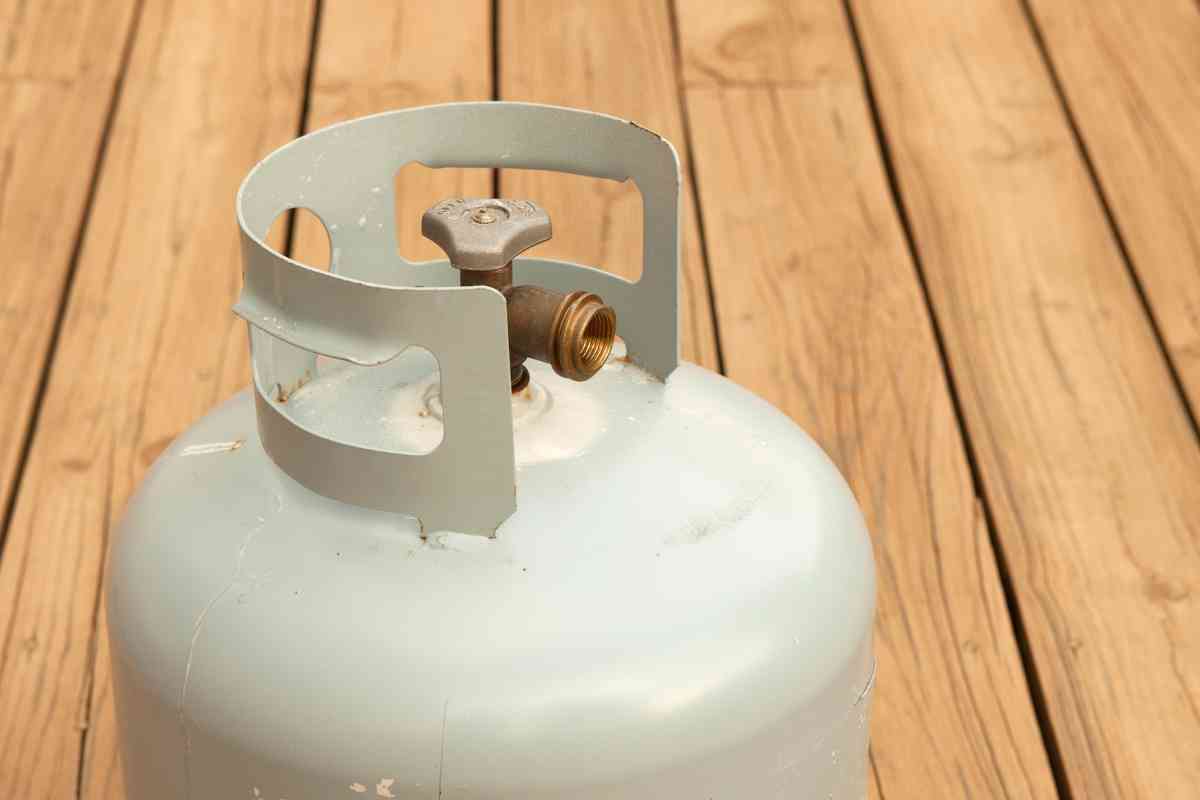
A loud, rapid click
When it comes to working with explosive gas, there aren’t many times when a loud rapid clicking noise is a good sign.
And it’s not here either. It is possible that the valve is loose or malfunctioning, and not properly regulating the amount of propane headed into the burner.
The next step here is usually to just turn the propane tank off. You don’t want excess gas flowing through the hoses and into the burner because it is entirely possible for the tank to send too much gas and cause some serious problems.
You have a couple of potential options here: While it is possible that the loud, rapid click is the result of a loose valve.
If you know how to tighten and loosen a valve, you can try to do it yourself.
Otherwise, you might be better off getting the tank serviced. Alternatively, the valve itself might be worn out and no longer working, requiring replacement by a technician – or yourself if you know how to do it.
Propane tank maintenance
Note that when discussing propane tank maintenance, we realize that some of our readers own a propane tank and get it filled manually while others effectively “rent” propane by heading to a hardware store or gas station and getting a whole new tank while returning the old one.
Our advice applies more to the connection between the grill or heater – and probably the entire unit, more so than the tank.
While it is acceptable to leave your grill out all winter in snowy climates, you might benefit from not having the grill directly impacted by snow and wet.
Extreme temperates and precipitation have the potential to cause corrosion as well as dry the grease within the valve. So if you can, store your propane heater or grill in a dry place during the winter.
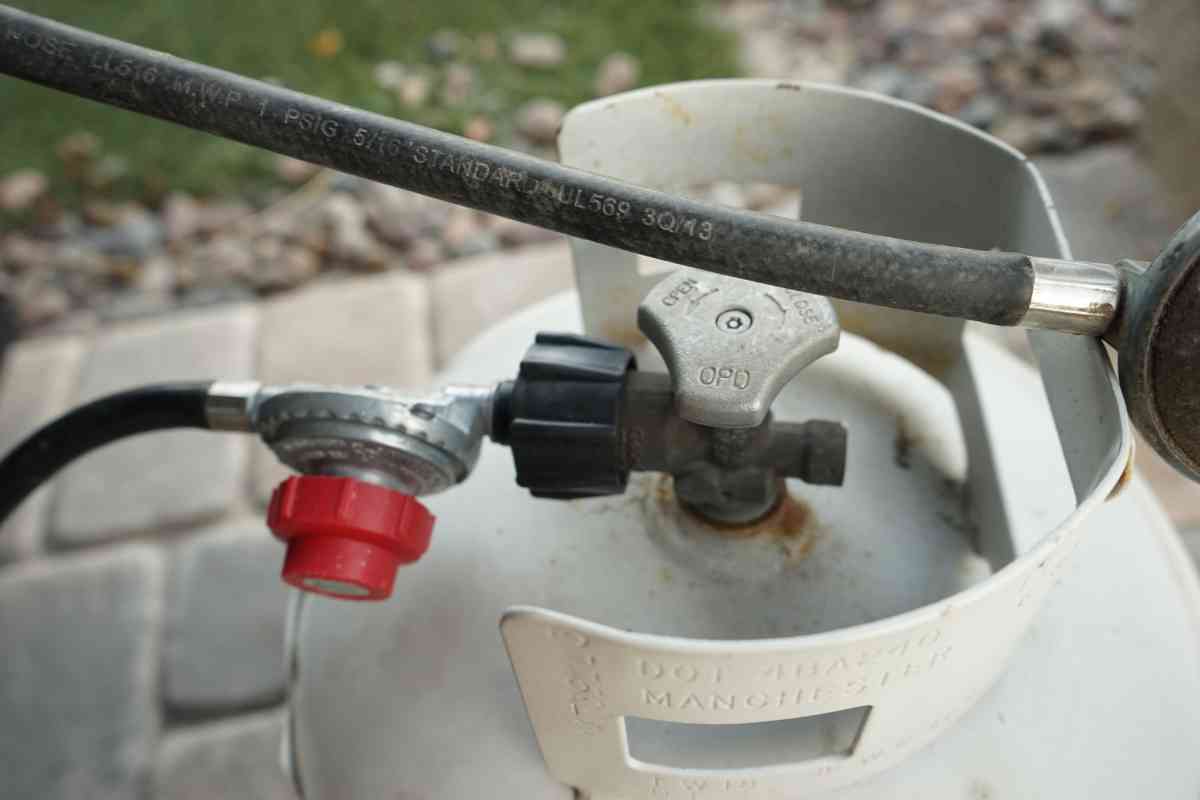
What other noises should I listen for?
Propane tanks aren’t limited to making a rapid tick when there is a problem.
Hissing
Opening the valve to your propane tank should result in a hiss to start with – but it should go away.
A hissing noise is normally from a propane leak somewhere within the tank or the hoses and regulator. Our first suggestion is to shut off the tank right away.
The next step is to take some water with soap in it and rub it on the hoses and any areas where a leak might take place. Turn the tank back on and wait for the soap to bubble up – you will have found the source of your leak!
Knocking
Knocking within your propane tank means you have an uneven mix of gas and air. You can also tell that the gas is uneven by looking at the color of the flame.
A solid blue or solid yellow flame is not good. The solution to this is either having a technician look at the tank which often means draining it.
Humming or gurgling
The propane tank is most likely overfilled. The result is that there is too much pressure going through the regulator, which can lead to failure.
You’ll want to contact your propane supplier to have the tank drained and refilled.
An overfilled tank could cause longer-term damage to the inside of the tank, which is especially bad if you own the tank.
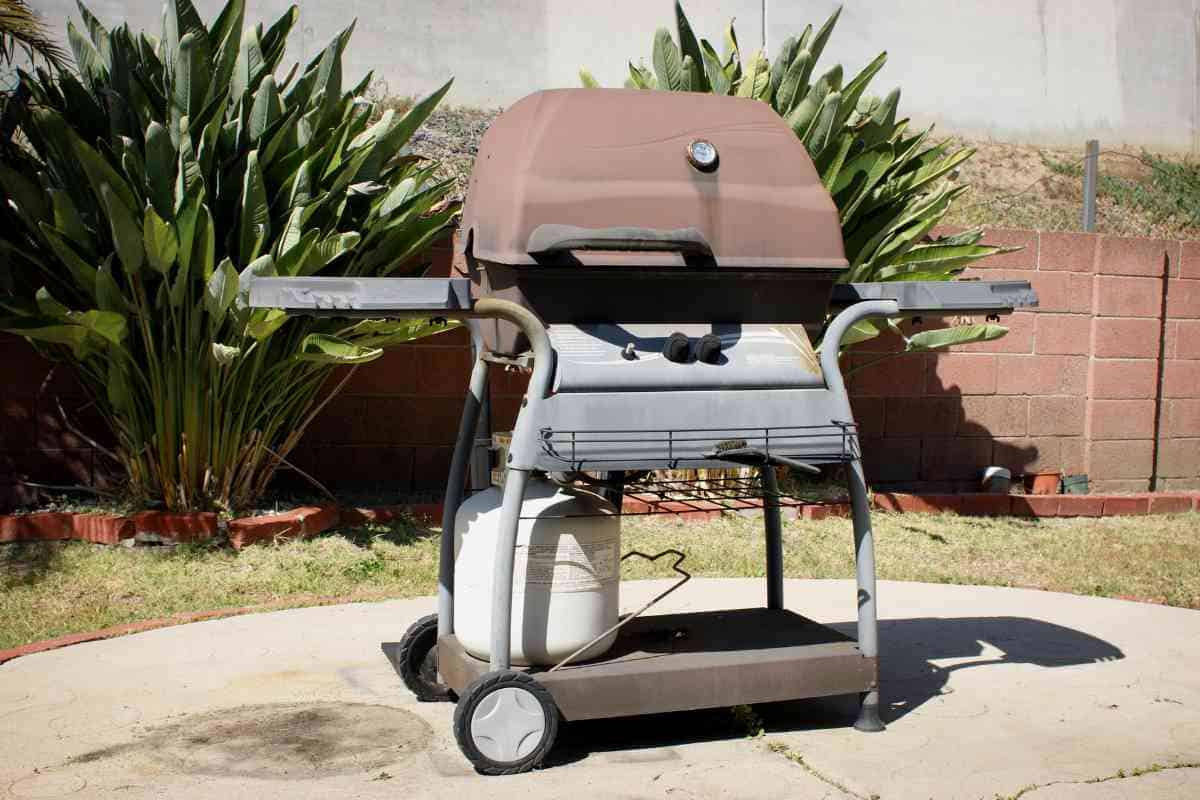
Related Posts
- Do Propane Tank Gauges Go Bad?
- Propane Tank Making A Ticking Noise?
- Propane Tank Whistling Noise
- Is It Safe To Leave A Propane Tank In The Car?
- How Long Do Propane Tanks Last?
- Will Too Much Heat Make A Propane Tank Explode?
- The Reason Why Propane Tanks Get Cold
- Selling Old Propane Tanks For Cash: What You Need To Know
- Here’s How Many Times A Propane Tank Can Be Recertified
Key Takeaways
- For a ticking sound – speed and volume are important.
- A repetitive, consistent, quiet ticking isn’t bad if your regulator is working
- A loud, rapid click is not good as is the valve or regular failing. We suggest shutting off the tank right away and getting the connectors fixed.
- One of the best ways to maintain a properly working grill or heater is to keep it inside in the winter.
- Otherwise, the hardware for a heater or burner tends to last 10 years or more.

